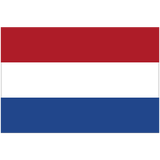
Germany-Netherlands canceled, stadium evacuated over bomb threat
Old adversaries Germany and the Netherlands were preparing to put rivalry aside to show solidarity with France, but their match in Hannover was abandoned at short notice due to security concerns.
Information from foreign intelligence suggested there was a 'serious' threat of a terrorist attack in Hannover, explained the German interior minister Thomas de Maiziere at a press conference. "This is a sad day for German football and German football fans," said president of the DFL, Dr. Reinhard Rauball. "We are keeping our options open ahead of the coming Bundesliga matchday."
"It was an extremely tough decision to cancel the match which was made after many pieces of info indicated concrete threat," said De Maiziere without wanting to confirm or expand on the information. Unconfirmed reports from local media in the region pointed to explosives found in an emergency truck outside the stadium, however Boris Pistorius, the interior minister of Lower Saxony, refused to confirm devices were found, but said no arrests have been made. "Germany and Europe is on high alert," added de Maiziere.
The German FA (DFB) and the local police were informed of a specific threat, and thus were forced to cancel the match. Friday's attacks in Paris – and on the Stade de France specifically – could mark a generational shift in how football stadiums are kept safe. As Germany's match became the second casualty to security concerns after Belgium-Spain, one wonders how much longer this fear can continue.
Prior to Friday's meeting with France, Germany's team hotel was subject to a bomb scare. Hours later, three suicide bombers blew themselves outside of the 80,000-seater stadium, injuring dozens of people. Had the security personnel outside the stadium allowed the bombers into the ground, the level of carnage and casualties would have been unthinkable.
For those on the pitch, however, it seemed business as usual. France won 2-0, celebrated both goals and were cheered on by a passionate home support. The respective coaches, Didier Deschamps and Joachim Löw, chose not to tell the players at half-time, although a revealing interview with defender Jerome Boateng in German sports magazine “Kicker” paints a picture of the tension among the squad.
“There was no smoke, nothing. I felt strange, because around midday we had had the bomb threat at our hotel,” he explained. However, Boateng had a quick glance at his phone at the interval and was aware of what was happening in Paris.
“Everybody was on the phone, I couldn't sleep, there were too many thoughts in my head. Friends of mine were in the stadium, another friend was in the city, but they were safe," he added. "The friend of one of my friends lost his wife and sister. Then you realize how close it all is."
Hannover had been in lockdown for the past 24 hours with security beefed up across the city. There were Dutch officers present as well to help ensure safety on what was set to be an emotional night at the HDI-Arena.
But the atmosphere wasn't like a normal matchday. Fans and journalists spoke on social media of the stadium being completely sealed off, while a 'suspicious item' was found in the vicinity of the venue. Yet the all-clear was given around 90 minutes before kick off for officials and media to enter the stadium.
However, not too long after, the match was called off after a suspicious object was found in the stadium. Food and drink was banned as police ushered supporters away from the stadium. The stadium announcer told fans to leave quickly, but without panic.
The officials – believed to include several figures from the Bundestag – and the respective team buses were whisked away before the evacuation had been completed. Meanwhile, another entertainment venue in Hannover was being evacuated simultaneously.
Domestic football resumes on Friday as Borussia Dortmund head for Hamburg, while Schalke host Bayern Munich on Saturday. More than half a million people will cram into football stadiums in the Bundesliga, 2.Bundesliga and third division for the first round of fixtures since the terrorist attacks last week.
France has banned away fans from traveling to matches, but there has been no clarification from the DFL, the Bundesliga's governing association, as to what restrictions could be in place. The DFB have launched an investigation into security measures for domestic and international fixtures.
Football was meant to be a tool to show unity and solidity following Friday's attacks. But those efforts have been in vain with only England's match with France going ahead this evening.

